What Is A VA Loan? Here Is What America’s Veterans Should Know
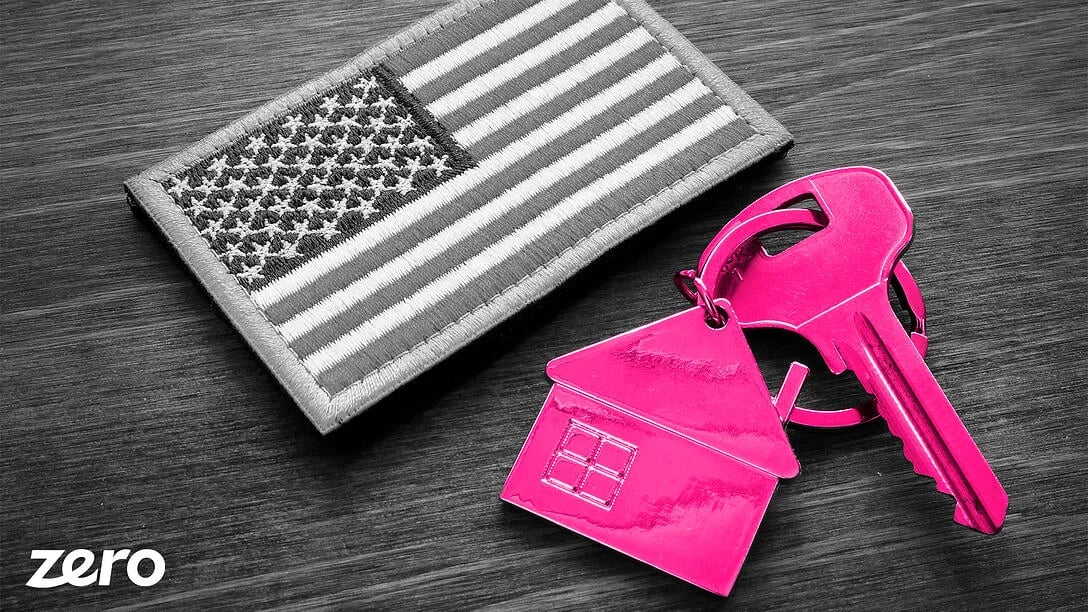
If you’re an active service member, a veteran, or the surviving spouse of a veteran, and you want to purchase a home or refinance your current home loan you should consider a VA Loan
Read our beginners' guide to buying a home here.
What is a VA loan?
We’re glad you asked. Simply put, a VA loan is a type of mortgage-backed or guaranteed by the Department of Veterans Affairs which provides certain benefits to those who served in the United States Armed Services.
These mortgages come with many benefits, which can make this type of loan the preferred option for many veterans. We’ll dive into all the important details below.
How Do VA Loans Work?
It’s important to note, the Department of Veteran Affairs isn’t a bank or lender, and they will not be the one issuing a VA loan. However, the Department of Veteran Affairs determines who qualifies for this type of loan. If and when the individual qualifies for a VA loan, the Department of Veterans Affairs will guarantee the loan, and a private mortgage lender will finance the deal.
Veterans can sometimes secure a loan with no money down, no mortgage insurance, and only requires the borrower to be considered a satisfactory credit risk by a lender.
VA Loan Eligibility Requirements
There are various requirements that one must meet to receive the Certificate of Eligibility or COE. Each veteran would have to meet one of the following requirements in order to secure the COE.
Service Member
To start, you must have been a member of the United States Armed Forces. You could be on active duty, reserves, or a veteran. If you’re no longer in the military, you’d need to have had an honorable discharge to maintain your eligibility for this loan.
Active Duty
There are specific time requirements one must meet as well. If you are or were an active-duty veteran, you’d need to have served at least 90 days of active duty service during a time of war. In the event your service was not during a time of war, you would have had to serve 181 consecutive days in active duty during a time of peace.
National Guard
Members of the National Guard are also eligible for these loans. The service time required for the National Guard is 6 years.
Spousal Eligibility
Spouses of a veteran who has died in the line of duty, or one who is missing in action or being held as a prisoner of war, may qualify for VA loans. The VA has a website dedicated to answering these commonly asked questions.
What Other VA Qualifications Are There?
Now with an understanding of who qualifies for the certificate of eligibility, let’s review some of the other important details.
Down Payment
America’s Veterans do not need to worry about putting a down payment on a VA loan. This is arguably one of the best benefits of a VA loan. That said, if you did decide to make a down payment, you can reduce your monthly payment.
However, if you want to keep more money in the bank and make no down payment, you are welcome to do so. You can keep that money for home repairs, furniture, or just in savings!
Funding Fees
A funding fee is a one-time payment that the mortgage obtainer must pay. The purpose of this fee is to lower the financial pressure this can place on the US tax system supporting this program. The current fee (for year 2021) is 2.30% of the loan’s value and is paid at closing.
Income
There is no income limit on the lower or upper end. Instead, VA loans look at your debt to income ratio or DTI. This is a financial ratio that measures how much debt you have each month against your monthly income. The VA loan generally requires your debt to income ratio to be no more than 41%.
If your debt exceeds that balance, you’d need to pay to reduce your monthly debt carrying costs to below 41% of your income before you can qualify for a loan.
Credit Score
Each lender will have its own requirement for a credit score. You have the ability to shop with various lenders before committing. In general, most lenders will accept a VA loan for veterans with lower credit scores, (580 - 620). This benefit makes securing a mortgage a bit easier when using a VA loan.
Type Of Property
There are many different types of homes one could finance with a VA home. The single-family residence is most common, but other homes will certainly get approved. The list of approved properties include; condominiums, manufactured homes (certain requirements must be met), modular homes, and new construction.
Currently, veterans are not allowed to use a VA loan to purchase a vacant lot or co-ops. If they wanted to do so, they’d have to go through a more traditional financing route.
Loan Limits
As of January of 2020, qualified veterans no longer have a restriction on the loan amount they can obtain. Previously, the federal government established an upper limit, which was roughly $500,000 in most counties throughout the country. However, this has been removed.
As long as a veteran qualifies for the loan, it doesn’t matter how expensive the home is.
Benefits Of VA Loans
In addition to some of the selling points discussed above, VA loans have a lot of other benefits that make these loans even more attractive for those that qualify.
Less Stringent Borrowing Criteria
There tends to be more leniency when it comes to securing a VA loan. Individuals can still get a loan even if their credit score isn’t great. Additionally, the 41% DTI ratio is more flexible than other private mortgages available to the general public.
Lower Interest Rates
Since the loans are backed by the government, the lenders look at them as less risky. Therefore, the interest rates offered to qualified homebuyers loans tend to be favorable with mortgage and refinance loans
No Down Payment
One of the most challenging aspects of buying a home is saving up enough money to make a large down payment. VA loans do not require a down payment.. Therefore, veterans can close on their home and choose to spend their money however they want, or just keep it in a savings account!
No Private Mortgage Insurance
Private mortgage insurance is a requirement on an FHA or conventional loan where the individual puts down less than a 20% down payment. This can literally be thousands of dollars each year, and the insurance doesn’t even cover the homeowner! VA loans do not come with any form of PMI, even if you don’t put down 20%.
Our Mortgage Learning Center features blogs on a wide range of mortgage and refinancing topics.
VA Loans, Making a Difference in Home Buying
A VA loan is meant to offer support to the veterans of the United States. These loans are backed by the Federal Government, and come with a long list of benefits. Many veterans choose to purchase a home using a VA because there is no down payment requirement, the debt-to-income ratio is more lenient, and there is no private mortgage insurance.
If you’re active duty, retired, or served 6 years in the National Guard, you may be able to qualify for this tremendous loan program.
Apply for a Home Loan Today!
This page last updated: October 11, 2022
Read more on this topic below.

When you buy a house and start making mortgage payments, your payment consists of four different components, known...

If you have gone through the pre-approval process but need to take a deeper dive into how much house to buy,...

The vast majority of mortgage loans require you to put down a certain percentage of the selling price upfront....

Whether you’re a first-time buyer or you’ve purchased a home before, you’ve likely heard of a homeowner’s association....

People buy their homes for a number of reasons. Affordability, stability, and comfort are some of the most...

Mortgage brokers play an integral and active role in the mortgage market, offering customers a service not made...
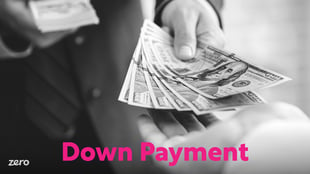
There’s a lot of expenses to keep in mind when you’re thinking about buying a home. Between the price of the home, property taxes, your mortgage...

Conventional loans are mortgages offered by private lenders, banks, and institutions that are not backed by the government. Unlike FHA, USDA,...

Some homebuyers refuse to purchase a property if it is part of a property owner association. On the...

Research indicates that 58% of homeowners in HOA communities and single-family homes pay an average monthly fee...

Private mortgage insurance is something millions of homeowners pay for each year. However, this type of insurance does not protect

When you first set out to buy a home, it can feel like you’re taking an exam you forgot to study for. You have to make quick...

When looking to refinance or buy a house, the pre-qualified vs pre-approved mortgage debate can be...
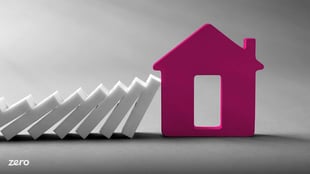
A home doesn’t just fall into foreclosure status. There are stages and processes that take place behind the scenes before...

It’s likely that your mortgage loan will be the largest loan you have during your lifetime. Mortgages are not a one size...

For many people, owning a home is part of the American dream. To make this dream a reality, most people will take out a...

Whenever you’re looking to buy a house, you’ll quickly realize there are a lot of fees associated with obtaining a mortgage....
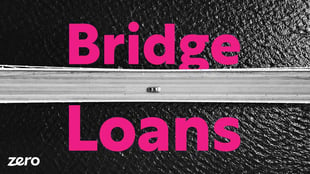
A bridge loan is a short-term loan a borrower may use while a more long-term financing contract is finalized. Bridge...

A loan estimate is crucial to obtain when looking for a loan. This estimate not only gives you the details of a mortgage but also compares offers...

There are many moving parts and various people you’ll deal with throughout the homebuying process....

If you’re looking to buy a house, and do not have a mountain of cash saved up, you’ll need to consider getting a mortgage to help you finance this...

If you find a property that you’re highly interested in buying but are concerned that the seller might choose...
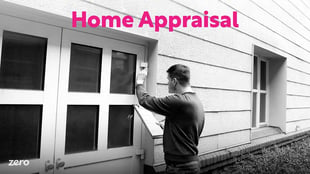
Buying a home? You’ll likely need to get it appraised before you receive the clear to close. If you’re wondering...

There’s no doubt, COVID-19 changed the world in countless ways and took us all by surprise. From an...

Whenever you are borrowing money, whether it’s for a new mortgage, a refinance, credit card, or car loan, you’ll hear...

If you’re new to buying a home, you probably have quickly realized the overwhelming amount of options there...

If you’ve already gone through the lengthy process of writing offers, securing financing, and arranging inspections for your...

One of the most important steps to buying a home is deciding on a mortgage loan and deciding on a loan involves settling on a good...

First time home buyers are often surprised when they learn about all of the expenses that are associated with ...

Purchasing real estate is not as simple as finding the right home, submitting an offer, and signing the closing paperwork; many...
